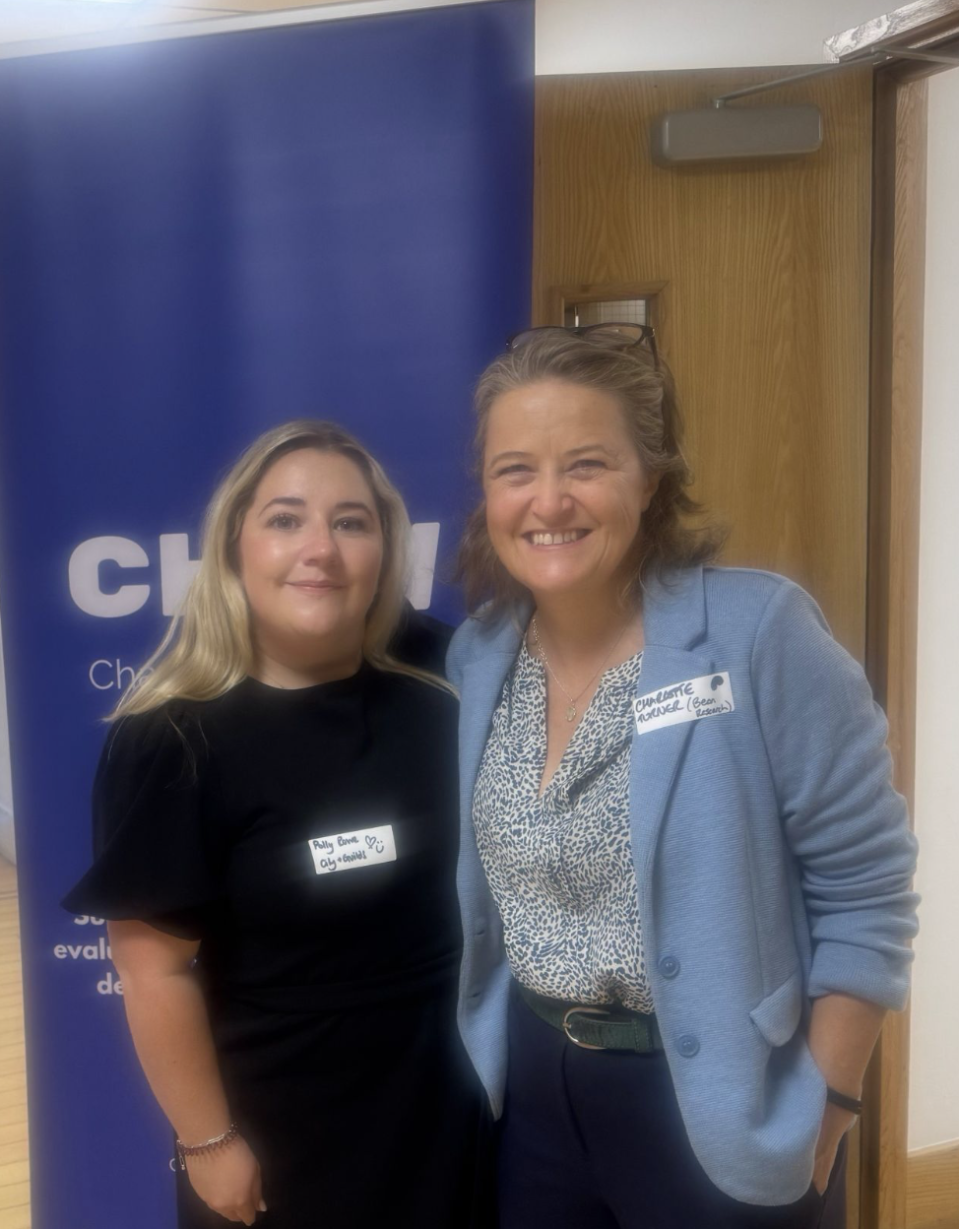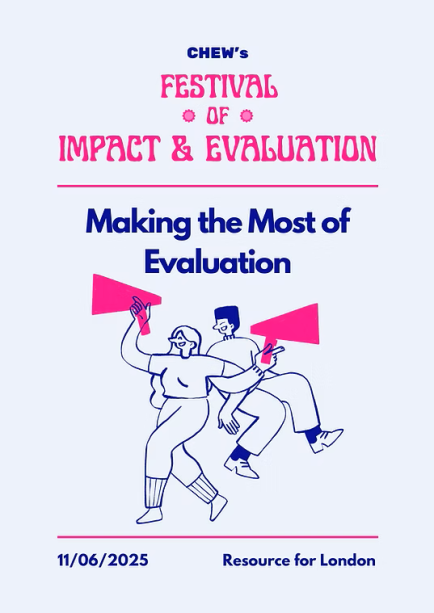At this year’s ChEW Festival, I was delighted to be invited to speak on a topic that feels central to our work at Bean Research: how evaluation can be used not just to prove, but to improve. I invited Polly Rowe from City & Guilds Foundation to join me in conversation, drawing on our evaluation partnership to explore how insight becomes action, and how learning can lead to tangible, strategic change.
Together, we shared how City & Guilds Foundation used findings from a process evaluation to fundamentally shift its approach — from traditional short-term grant-making to a more strategic commissioning model. This change has supported deeper, more sustainable outcomes, such as the award-winning rail track course in HMP Highpoint, which has now trained over 100 men, with over 80% progressing into employment. The session sparked rich discussion on what kind of evidence drives change — and how we can create the right conditions for it.
To feed into this, I introduced our LEARN model for evaluation and learning partnerships. Built from over 30 years of practice, and grounded in sector-wide frameworks including Social Value International, IVAR and the UK Evaluation Society, LEARN is a five-step framework based on Listen, Establish, Apply, Report & Reflect, and Nurture. It’s a model designed to turn evaluation into a shared, proportionate and purposeful process — one that’s rooted in collaboration and systems thinking, and responsive to lived experience.
That focus on lived experience and trust-based learning ran throughout the day. Kamna Muralidharan’s keynote was a powerful provocation, reminding us that evaluation often mirrors existing inequalities. She challenged us to ask:
🟡 What is the true purpose of our evaluation?
🟡 Who holds the power to shape it?
🟡 Whose knowledge do we validate — and whose is ignored?
It was a necessary and timely call to reimagine evaluation as something co-owned, inclusive and context-aware.
Other sessions stayed with me too. Anoushka Kenley made a compelling case for putting wellbeing at the centre of how we measure change, one which we use regularly in Social Return on Investment analysis, but should also be a reminder that outcomes should never come at the cost of people’s lives or dignity. Rupal Anand and Jessica Cox from GambleAware spoke about embedding lived experience in commissioning and Girlguiding shared a brilliantly human approach to theory of change, minus the jargon.
What united these conversations was the idea that evaluation and learning aren’t in tension. When done well, they are one and the same – a means of asking better questions, making better decisions, and ultimately, delivering better outcomes.
That deeply resonates with us at Bean Research. In fact, it’s the foundation of how we work. We often say that evaluation should be a learning process, not a judgement — and that means doing it in a way that is collaborative, proportionate, and rooted in real-world practice. Evaluation shouldn’t sit on the outside looking in. It should sit alongside organisations and communities, helping them make sense of what’s happening and shape what happens next.
The reflections at ChEW reaffirmed much of what we’re trying to do through the LEARN model. From listening first and building shared frameworks, to applying insight and creating space for reflection, our aim is to embed evaluation into the DNA of an organisation’s learning culture. Not just to report impact, but to help shape it.
This isn’t always easy. It requires trust, time, and a willingness to share power. But when people are supported to own the learning, when lived experience shapes the questions, and when insight is used to improve rather than prove — that’s when evaluation becomes most meaningful.
ChEW reminded me why we do this work: not to chase metrics, but to make change more thoughtful, more inclusive, and more human.
Charlotte Turner, Director, Bean Research


